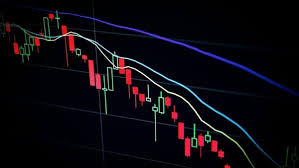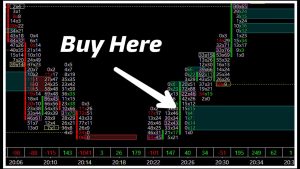Forex Market Manipulation – A Study of the LIBOR Scandal and Its Implication
3 min read
FX market manipulation can have serious repercussions for traders and investors, impairing their ability to make trading decisions based on accurate information about market conditions.
Manipulating Libor for private gain would require collusion among several banks with substantial lending and borrowing positions, and traders using Libor rates to hedge against risk could have seen large losses over time due to relatively minor changes in its benchmark rate.
What is LIBOR?
LIBOR stands for London Interbank Offered Rate and is one of the most important interest rates in finance, used as the basis for trillions of financial contracts worldwide ranging from floating rate certificates of deposit to adjustable-rate mortgages.
LIBOR faced significant controversy following an age-long rate rigging scandal which surfaced in 2012. Allegations surfaced that banks were providing false data in order to manipulate LIBOR benchmark rates and manipulate LIBOR itself.
Accordingly, the British Bankers’ Association was no longer allowed to set LIBOR, and its process was amended for greater transparency. Now based on actual transaction data in unsecured wholesale funding markets rather than submissions from panels of banks, this new index now measures actual lending rates on unsecure wholesale funding markets rather than those set forth in panels submitted by bank panels.
ARRC also created an alternative to LIBOR called SOFR (Selective Overnight Funding Requirement), which is more transparent, stable, and less susceptible to manipulation compared with LIBOR in its previous form. Loans currently referencing LIBOR should switch over as soon as possible in favor of SOFR as an indicator rate.
Why is LIBOR important?
LIBOR rates are educated estimates of what banks in London might pay each other to borrow money, with three-month LIBOR being most frequently referenced (it accounts for 95% of transactions referencing benchmark rates).
Reason being, manipulating rates would result in financial markets failing to accurately price risk – most financial instruments like mortgages and derivatives are built around this assumption that prices reflect true underlying value.
Traders attempting to manipulate LIBOR in order to make bets may have gained from manipulating its rates, yet their actions could also cause harm to other investors and the economy as a whole. For instance, had traders increased LIBOR prior to the financial crisis, mortgage holders may have paid more than necessary and cities, pension funds, and transportation systems with investments linked to LIBOR may have experienced losses in investment returns tied to that rate may have suffered losses as well.
How did LIBOR get distorted?
LIBOR scandal illustrated that traders with an interest can manipulate an influential benchmark rate like LIBOR without going through an exchange, since LIBOR is calculated using self-reported interest rates of major banks lending one another money; there’s no way of forcing bankers to be honest when reporting their borrowing costs.
Traded at banks can often make profits from moving LIBOR up or down to support derivative and trading positions. During Barclays’ dire financial condition from 2007-2009, pressure mounted for traders there to shift LIBOR downward because if their submissions looked high enough other banks might refuse lending money.
As LIBOR debt has ceilings above which the rate cannot go, it is difficult to know the extent of any temporary manipulation’s impact on individual borrowers – however the damage to confidence in banking institutions was severe.
What are the consequences of LIBOR manipulation?
Libor manipulation scandal has had significant repercussions for banks involved and financial markets as a whole. Libor serves as a benchmark rate that forms the basis of global lending markets; when its manipulation was discovered, numerous investigations and lawsuits from both public authorities as well as private parties ensued.
One of the primary repercussions of manipulating LIBOR is undermining trust in banking system. If banks can lie so casually about something as critical as borrowing interest rates, what else might they be concealing from us?
As a result of the scandal, LIBOR was replaced by the Intercontinental Exchange’s ICE Benchmark Administration. While rates are still published publicly, they no longer are set by the British Bankers’ Association but instead determined daily by panels of banks which submit rates for consideration; all this process is overseen by independent experts to ensure accuracy in submissions.






